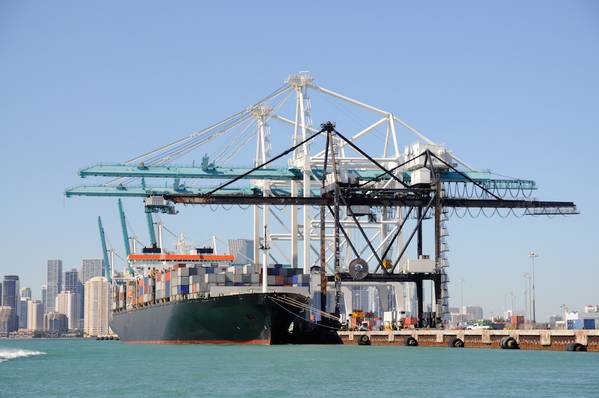FY 2017 Omnibus Good for Ports -AAPA
Posted by Eric Haun
May 4, 2017

© philipus / Adobe Stock
Spending levels for several federal agencies aid port authority efforts to deliver prosperity
The American Association of Port Authorities (AAPA) is applauding Congress for approving the 2017 Omnibus Appropriations Bill, which will maintain or increase funding for several programs in a variety of federal agencies that help America’s seaports deliver economic prosperity, create U.S. jobs and benefit local communities.
“The funding levels in this legislation will benefit U.S. ports by ensuring the federal government continues to contribute its share of capital to seaport-related infrastructure, port security and voluntary diesel emissions reductions efforts,” said Kurt J. Nagle, AAPA’s president and CEO. “AAPA’s U.S.-member ports are especially encouraged by the robust funding provided for the U.S. Army Corps of Engineers’ Navigation Program, which is a critical partner in ensuring that America’s waterside infrastructure is prepared for growing volumes of both export and import trade.”
This legislation is a milestone in AAPA’s America: Keep It Moving campaign, which informs policymakers, and those who influence policy, about the job-creating power of U.S. ports. The nation’s manufacturers, farmers and other workers count on modern and efficient seaports to move American products to vital overseas markets.
Specific funding levels within the 2017 Omnibus Appropriations Bill that benefit U.S. ports include:
- $6.038 billion for the Army Corps of Engineers, including $2.66 billion for navigation projects and studies, $1.301 billion for Harbor Maintenance Trust Fund work and $28 million for the Donor and Energy Transfer Ports Program;
- $500 million for the U.S. Department of Transportation’s TIGER program;
- $100 million for the Department of Homeland Security’s Port Security Grant Program;
- $60 million for the Environmental Protection Agency’s Diesel Emissions Reduction Act (DERA) program;
- $5 million for the Maritime Administration’s Marine Highways Program; and
- $1.466 billion for the Food for Peace program, with a one-time $134 million increase for famine crises and $202 million for the McGovern-Dole program for the remainder of FY 2017.
“Seaport cargo activity accounts for 26 percent of the U.S. economy, generating nearly $4.6 trillion a year in total economic activity, supporting some 23 million American jobs, and producing more than $321 billion federal, state and local tax revenues annually,” Nagle said. “The federal government is a key partner with U.S. ports and their private sector partners to achieve this level of prosperity for the nation. The 2017 Omnibus Appropriations Bill will better enable seaports to meet a growing demand for the safe, efficient movement of freight.”




